Mastering the Art: How Long Does It Really Take to Learn Appliance Repair?
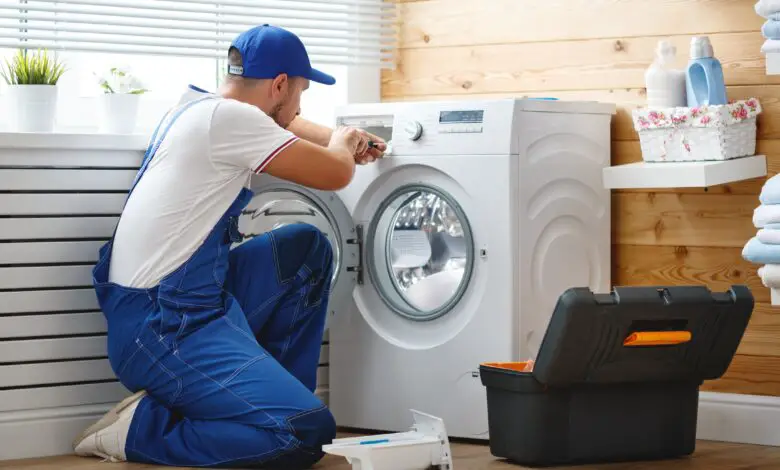
From the humble toaster to the sophisticated washing machine, appliances have become an integral part of our daily lives. Ensuring they function correctly not only guarantees convenience but also extends their lifespan.
But the intriguing question remains – how much time is required to truly become proficient in fixing these household gadgets? Let’s embark on a journey to understand the intricacies of appliance repair and gauge the duration it might take to master this handy skill.
The Basics
Diving into the realm of fixing gadgets begins with a comprehension of the core principles. Often, these principles revolve around the mechanics of how machines operate. An elementary understanding will typically include recognizing different components, their functions, and how they come together to make an appliance work.
While some might believe that appliance repair is solely about tinkering with parts, there’s a deeper layer to it. It’s crucial to grasp the concept of appliance lifecycles, manufacturer guidelines, and maintenance routines.
Without this knowledge, one might fix an issue temporarily but miss out on understanding the underlying problem, leading to recurring issues. Check out white goods repairs to learn more about this.
A pivotal aspect that many overlook is the user manual. These documents, provided by manufacturers, offer invaluable insights into an appliance’s operational framework. Taking time to peruse these manuals can significantly reduce the learning curve, offering step-by-step guidance on the basics.
Essential Tools and Equipment
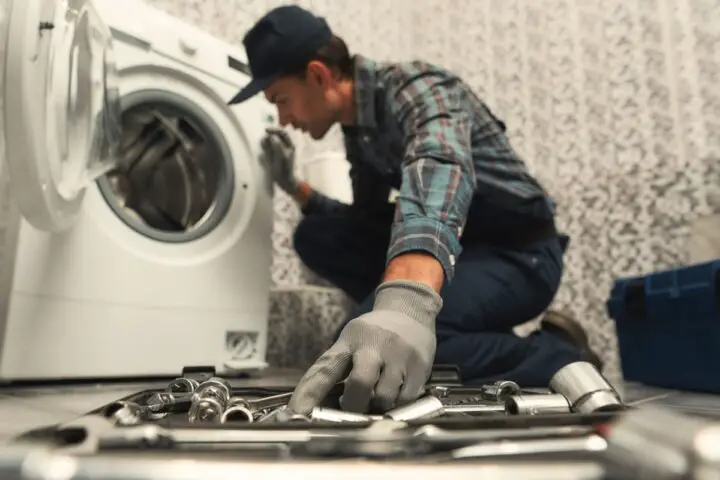
Imagine attempting to write without a pen. This analogy closely mirrors the importance of having the right tools when dealing with appliance issues. Starting with a versatile toolkit can make tasks easier, ensuring you have the correct instrument for every challenge.
Beyond the basic screwdrivers and wrenches, one should also invest in specialized tools like multimeters, nut drivers, and clamp meters. These tools not only expedite the repair process but also elevate the accuracy of your diagnosis, ensuring you pinpoint problems with precision.
However, owning tools is just one side of the coin. The real mastery lies in using them adeptly. This proficiency comes with time and practice, combined with a keen understanding of each tool’s purpose and functionality.
Understanding Appliance Types
Household gadgets are as diverse as the tasks they perform. From refrigerators that keep our food fresh to ovens that cook our meals to perfection, each appliance possesses unique mechanisms.
Small appliances like blenders or toasters might seem simple, yet their compact design can often make repairs intricate. On the other hand, larger appliances like refrigerators or washing machines may intimidate beginners with their size, but their modular construction often simplifies the repair process.
Regardless of size, every appliance boasts distinct characteristics. Acquiring proficiency involves not just learning the basics but also delving deep into the specific mechanisms of each type, ensuring comprehensive expertise.
Learn how to budget the appliances you may need for a new home and save big.
Learning Electrical Fundamentals
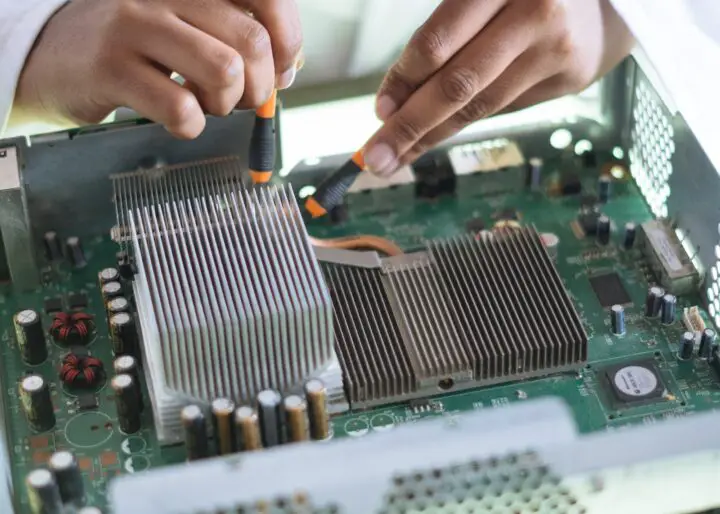
At their core, many appliances are electrical devices. Hence, a foundational understanding of electrical concepts is paramount for anyone aspiring to repair them competently.
Electricity can be perplexing, with its jargon like voltage, current, and resistance. However, breaking these concepts down and understanding their interplay can provide crucial insights into how appliances function and, more importantly, how to fix them when they malfunction.
A word of caution, though – electricity is as dangerous as it is fascinating. Before embarking on any repair, it’s paramount to familiarize oneself with the safety protocols related to electricity. This not only ensures the longevity of the appliance but also the safety of the repair person.
Troubleshooting Common Appliance Problems
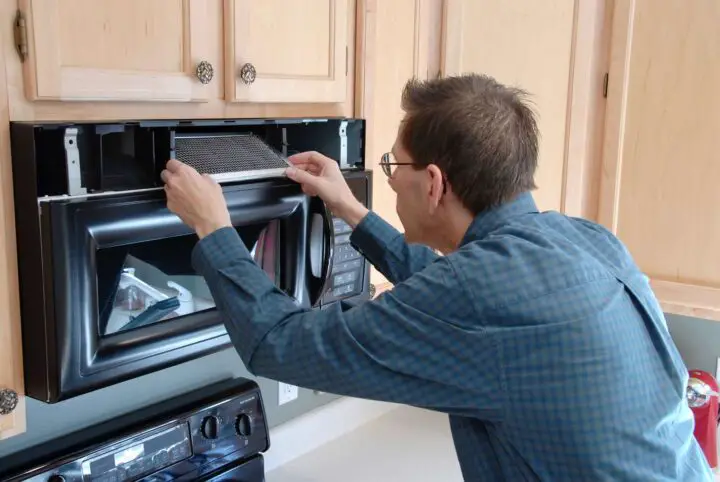
Like a detective piecing together a mystery, troubleshooting is all about identifying the root cause of an issue. Every appliance showcases symptoms when something goes awry, and deciphering these signs is the first step in the repair journey.
Often, common issues will have predictable solutions. For example, if a refrigerator isn’t cooling effectively, it could be due to a faulty thermostat or blocked vents. Recognizing patterns and connecting symptoms to potential problems is a skill honed over time.
Yet, not every problem is textbook. Some issues are anomalies, requiring a mix of knowledge, experience, and intuition to resolve. Over time, as one encounters a multitude of problems, this ability to think on one’s feet and innovate solutions becomes second nature.
Appliance Repair Safety Measures
Repairing appliances is not without its hazards. Whether it’s the threat of electrical shocks or the danger of sharp components, safety should never be an afterthought.
It’s essential to always disconnect any gadget from its power source before commencing repairs. This simple act can significantly mitigate the risk of electrical mishaps. Protective gear, like gloves and safety goggles, further ensures one remains shielded from potential injuries.
Beyond personal safety, one should also prioritize the well-being of the appliance. Utilizing non-conductive tools, avoiding the use of excessive force, and ensuring a clean workspace can all contribute to the safe and effective repair of any gadget.
Developing Repair Techniques
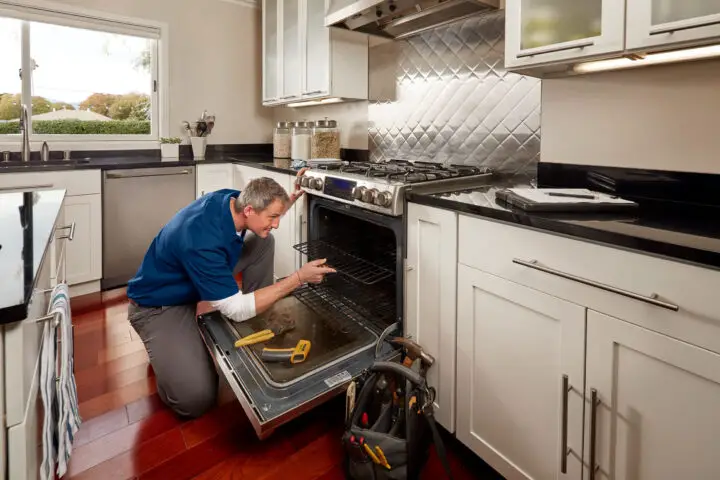
As with any craft, developing techniques tailored to appliance repair can elevate one’s efficiency and efficacy. These methodologies often emerge from experience, blending knowledge with hands-on practice.
Different appliances might require diverse approaches. While some gadgets benefit from a systematic, step-by-step repair strategy, others might need a more intuitive, trial-and-error methodology.
Over time, as one becomes familiar with various appliances and their quirks, personalized techniques emerge. These become a signature style, aiding in quick diagnosis, efficient repairs, and ensuring the longevity of the fixed gadgets.
Advanced Appliance Repair Skills
Once the basics are firmly in grasp, delving into advanced skills can truly differentiate an average repairperson from a maestro. These might involve understanding the latest technological advancements, diving deep into electronics, or even mastering the art of appliance customization.
Modern appliances are increasingly becoming smart, integrating with home automation systems and IoT platforms. Understanding these interconnections and their implications can be pivotal for advanced repairs.
Continuous learning is the cornerstone of mastering advanced skills. Whether it’s through formal courses, online tutorials, or simply staying updated with industry advancements, the journey to expertise is an ongoing one, fraught with challenges but immensely rewarding.
Final Thoughts
While the path to mastering appliance repair is a blend of theoretical knowledge, practical experience, and continuous learning, the duration to truly become an expert varies. For some, it might be a few months of dedicated practice, while for others, it might span years of learning and refining.
The key lies in passion, perseverance, and an insatiable curiosity about the world of appliances. So, whether you’re an amateur dabbling in minor fixes or an aspiring professional, remember that every repair, every challenge, and every solution brings you one step closer to mastery.
